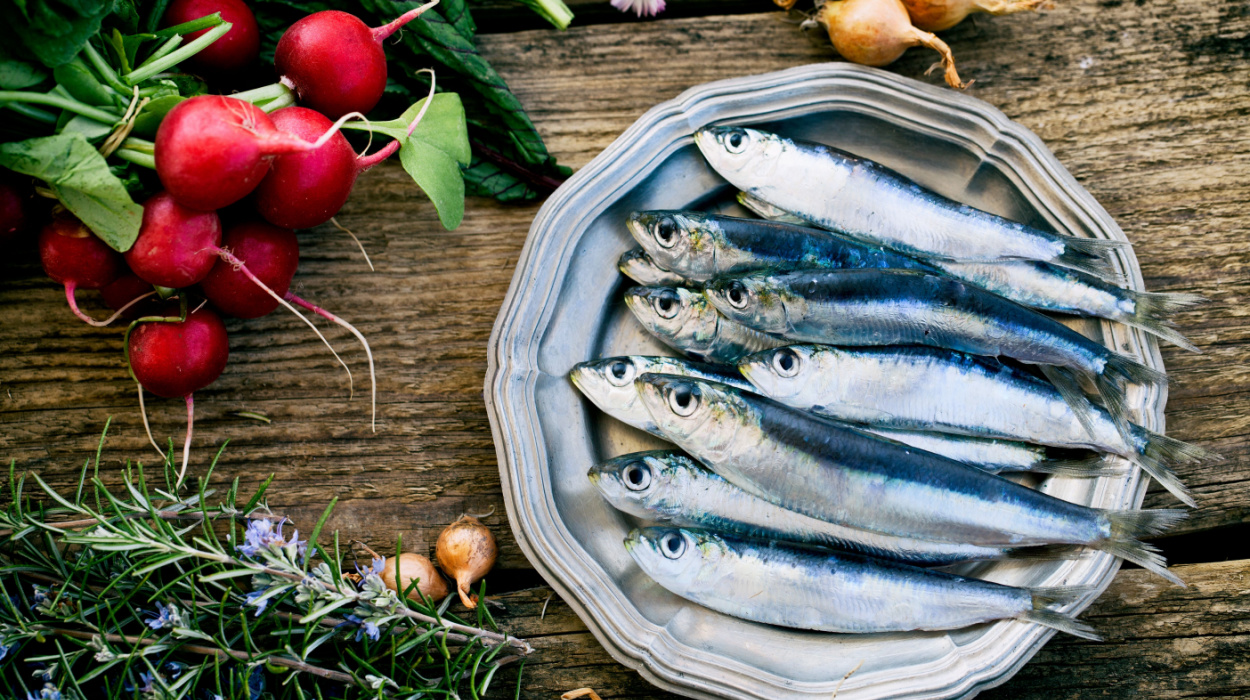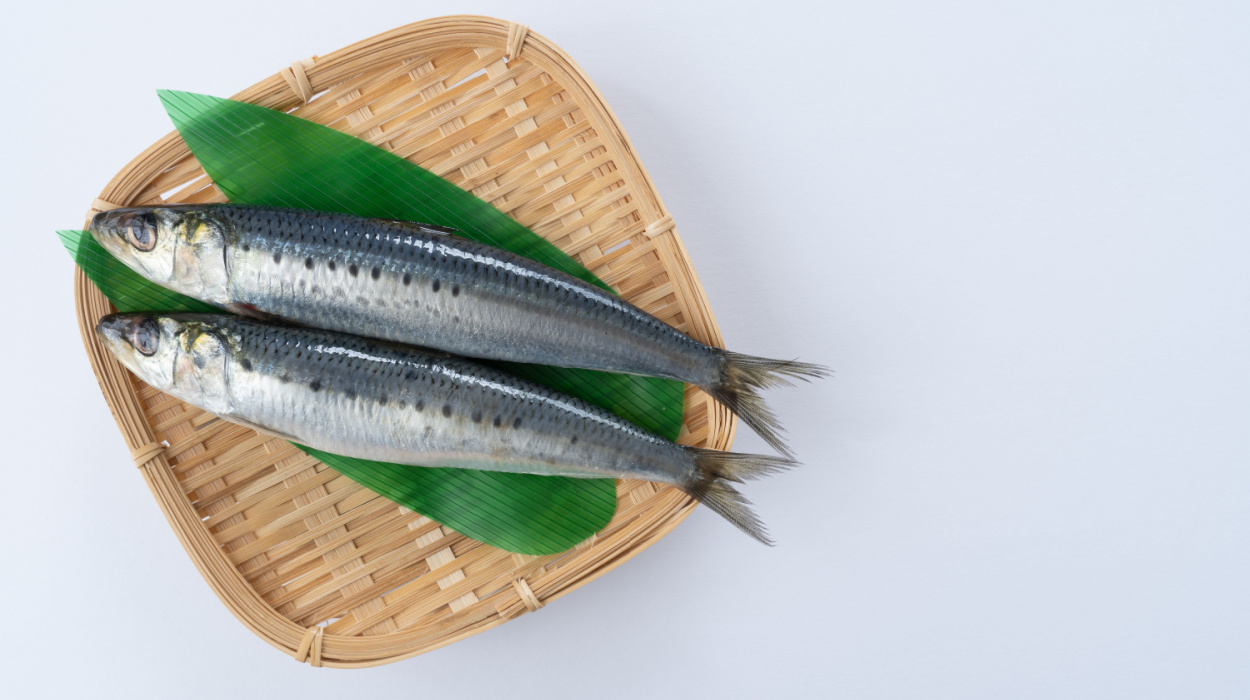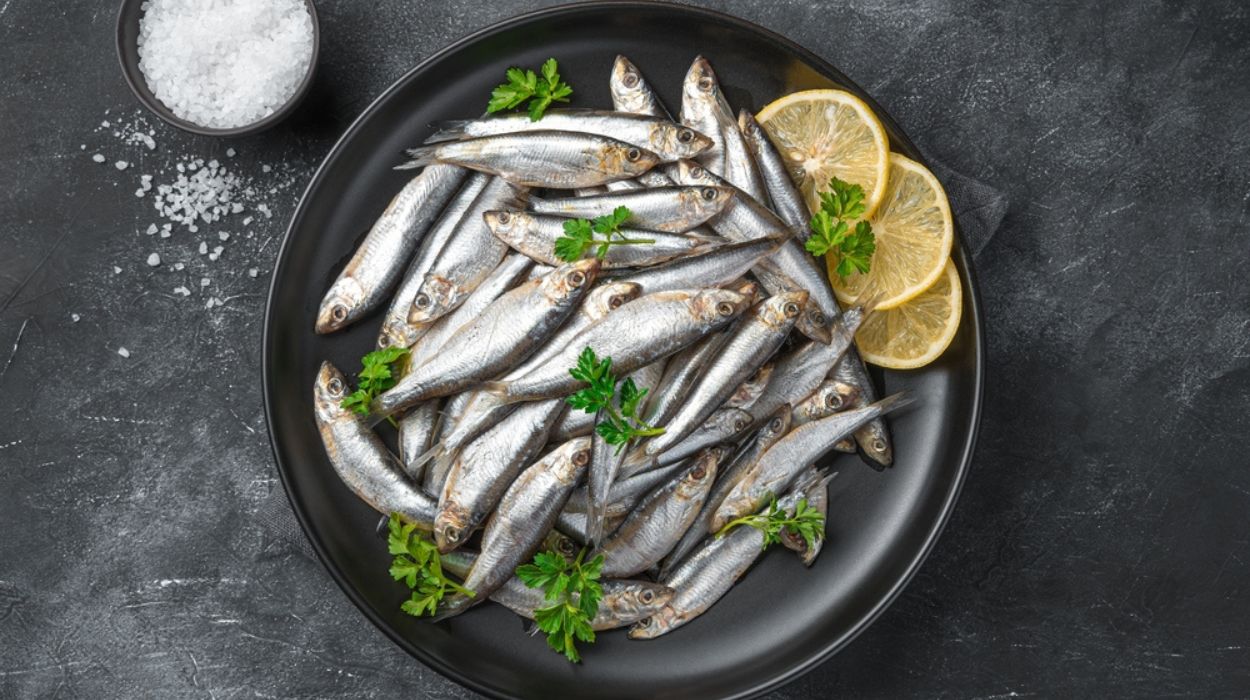Ever thought about how you can add a nutritional superfood to your diet? Look no further than sardines.
These little fish are loaded with health benefits. Full of protein, essential nutrients, and minerals, they’re an ideal go-to for maintaining a well-balanced diet. They are known to be a staple in the Mediterranean diet for a good reason.
Food sources and lifestyle changes can be better for weight loss than even the best fat burner supplement.
So, are sardines good for weight loss,[1] or should you skip them to eat fish of another variety? Keep reading to discover if they are fattening and if eating sardines can help you lose weight.
Are Sardines Good For Losing Weight?
Yes, sardines are a nutritional powerhouse that can help you lose weight.
They’re packed with protein, essential minerals, and nutrients like omega-3s, calcium, and vitamin D to boost your energy levels. Their low-fat and high-protein content makes them ideal for creating a caloric deficit while keeping you full and satisfied. Eat in moderation, but no more than two to three times per week due to mercury content. Give them a try with salads, grilled dishes, and stews.
Are Sardines Good For Weight Loss?

The benefits of eating sardines for weight loss range from their high protein content and healthy fats to their nutrient density.
High Protein
A diet high in protein has been shown to help with weight loss.[2] Sardines are a great source of protein while being low in calories.
Protein is filling, helps you build muscle, and stimulates your metabolism. It plays a crucial role in supporting your overall health and repairing and maintaining body tissues.
Rich In Healthy Fats And Omega-3 Fatty Acids
Sardines are a natural source[3] of omega-3 fatty acids and good fats for weight loss known for their health benefits – they help with inflammation, and obesity is an inflammatory condition.
Fats keep you satisfied and are a tasty addition to your meals. They’re also good for you; you can’t have a healthy balanced diet without them.
Now, how many grams of fat per day should you eat to lose weight? According to the World Health Organization,[4] limiting your total fat intake to 30% or less of your daily calorie intake is recommended. So, for a person following a 2,000-calorie diet x .3 = 600 calories / 9 kcal/gram = 67 grams of total fat per day.
Metabolic Regulation
When eaten with their bones, you get more of the calcium benefits sardines have to offer. Calcium aids in weight loss[5] by supporting a healthy functioning metabolism, which may help you burn belly fat.
Reduced Inflammation
Essential for helping your body absorb calcium, sardines are also a good source of vitamin D.[6] Achieving good blood levels of vitamin D reduces inflammation and is vital for overall health and well-being.
Research shows that a healthy diet containing canned sardines is better than taking[7] fish oil supplements for heart health. Those who consume sardines may experience a reduction in high blood pressure and a decline in triglyceride levels leading to a reduced risk for heart disease.
Low Mercury Content
The heavy metals or mercury content in sardines[8] is lower than in other oily fish, which makes it an ideal oily fish choice. Pregnant women must pay attention to local and federal fish advisories so the toxic pollutants often found in fish, like mercury, can be limited to a safe level. Another oily fish choice low in mercury would be salmon.
The Importance Of A Healthy Lifestyle
Along with a healthy diet, embracing an active lifestyle with moderate daily exercise is key to achieving your weight goals. Experts recommend 150 minutes per week[9] to lose weight.
You don’t have to go to the gym or force yourself to do exercise you hate, either. Think of something fun to try, like joining a hiking group, dance class, or calming evening walks in the park.
Also, make time in your day to prepare wholesome meals with fresh or frozen produce. Think about scheduling one or two days a week to cook meals for leftovers or give healthy food delivery services a try.
The Nutritional Value Of Sardines

Let’s dive into what the USDA[10] says 100 grams of sardines contain (canned sardines are about 92 grams):
- Calories: 208.
- Protein: 24.6 grams.
- Monounsaturated fats: 3.87 grams.
- Polyunsaturated fats: 5.15 grams.
- Total Fat: 11.4 grams.
- Omega-3 fatty acids:[3] 1.5 grams. Essential for cell growth and the immune system.
- Calcium: 382 mg. Supports proper immune system function and metabolism regulation.
- Vitamin D: 193 IU. Aids bone health and calcium absorption.
- Iron: 2.92 mg. Essential for good energy levels and well-being.
Plant-Based Alternatives To Sardines For Weight
Exploring plant-based alternatives to fatty fish? Consider eating algae – easy to add to soups or salads. Walnuts and flaxseeds serve as a wholesome snack or addition to smoothies. If transitioning to a plant-based diet, speak with a registered dietitian to ensure sufficient nutrient intake.
How To Cook And Eat Sardines For Weight Loss
Discover ways to prepare sardines and how to start eating healthy. They’re fantastic for adding flavor to salads or as a simple snack – a great addition to summer and winter recipes.
Plus, canned sardines in olive oil or tomato sauce can be conveniently stored in your pantry – an ideal go-to for a quick, easy, and affordable nutritious meal.
Ideas For How To Cook Sardines
- On toast: Spread a can of sardines in tomato sauce on toast and top with an egg for a hearty brunch.
- Grilled or BBQ: Keep it simple and grill or BBQ some fresh sardines from your local market.
- In a salad: Mix some canned sardines into a salad along with olives and capers for a Mediterranean-style salad.
- Pasta sauce: Crumble some sardines into a sauce or mix with some olive oil and lemon.
- Stuffed peppers: Stuff some red peppers with sardines and bake them in the oven; serve them along with some salad or wholegrain rice.
- Stew mix: Add some sardines to a fish and vegetable stew for a warm and nutritious winter meal.
Avoid Vegetable Oils
When cooking your meals or preparing salads, avoid using vegetable oils because they can be inflammatory.[11] Instead, go for olive oil, which is anti-inflammatory and has many antioxidant benefits.
Sardines are typically packed in soybean oil, a source of omega-6 fat, which we get too much of. Drain the fat from the sardine pack before eating to reduce total fat intake.
Side Effects Of The Sardine
A sardine is a high purine food meaning it could lead to high uric acid levels in the blood and should be avoided by people who suffer from gout. Elevated uric acid levels may harm the kidneys, so avoiding this small fish may be advisable for those with gout or kidney stones.
Conclusion
In a nutshell, sardines are a powerhouse for weight loss. Bursting with protein, omega-3s, and essential nutrients, these little fish are not only healthy but also delicious. Dive into their versatility, whether in a salad, grilled, or in a stew.
Sardines are a flavourful, budget-friendly secret to a balanced and nutritious diet. A nutritious diet contains at least two servings of fish a week,[12] with one serving being an oily fish, like sardines.
Frequently Asked Questions
Yes, Sardines can be a great addition to your diet if you want to lose belly fat. They’re low in fat, high in protein, and full of nutrients.
No, because of the mercury levels in fish, it’s best to limit eating sardines to two or three times a week.[12] This way, you’ll still get the health benefits of sardines while minimizing the risk of mercury exposure.
Eating too many sardines may lead to digestive issues or allergic reactions[13] in some. Stick to the recommended portion size to be on the safe side, ensuring you still get all the goodness out of them.
It depends; If you are being more cautious about your calorie intake, water is a good option. However, sardines in olive oil are a great choice for an affordable salad dressing.
 Evidence Based
Evidence Based
